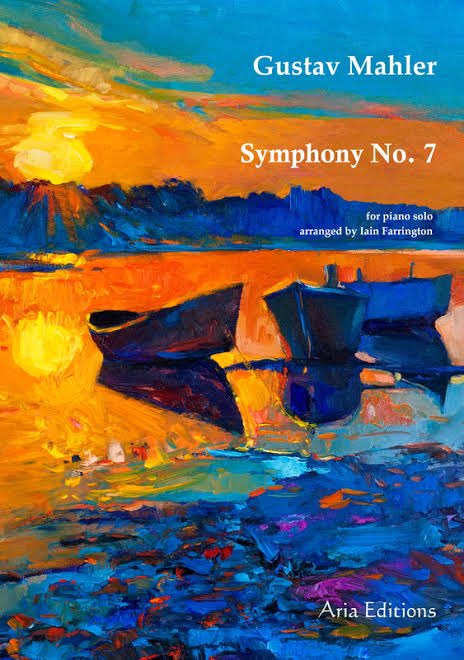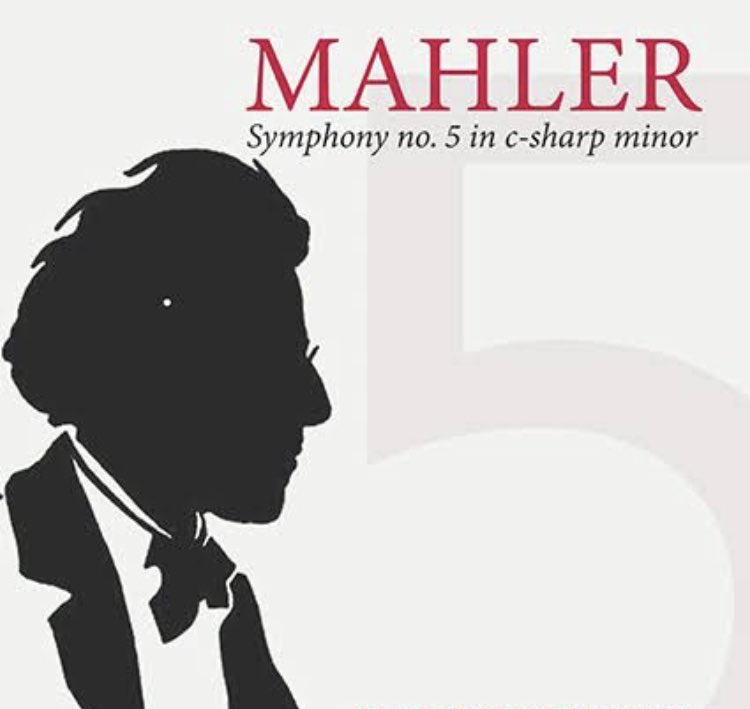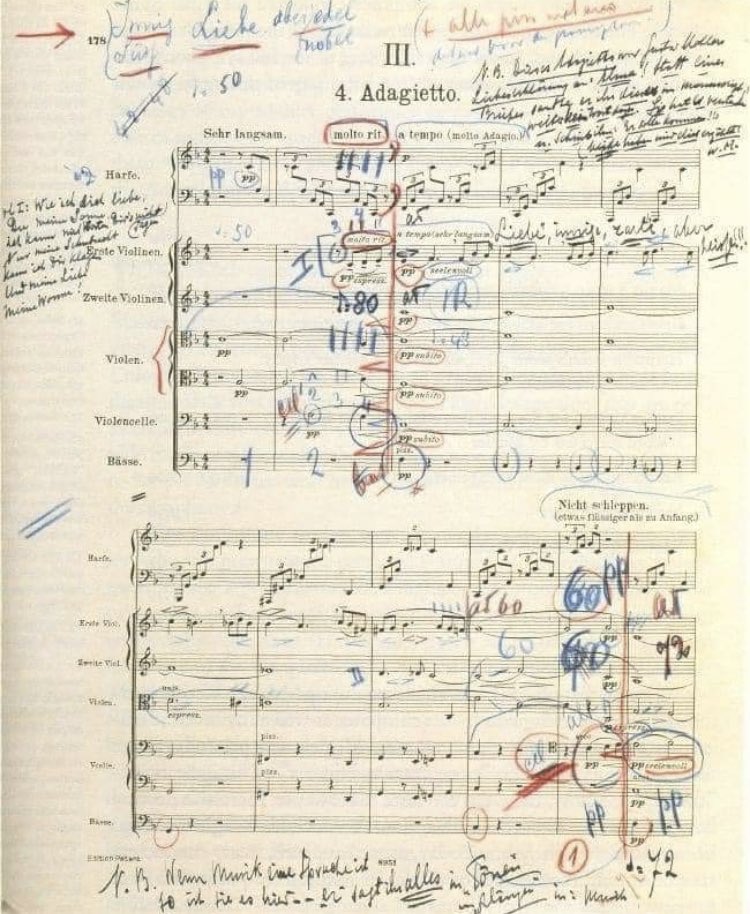This is a brief introduction to Gustav #Mahler’s Das Lied von der Erde (DLvdE). This is Part 1 of 3. The next two parts will be up next week. A six song symphonic composition by the Austrian giant. In many ways DLvdE reiterates the expressive range of Mahler’s creativity. 

During a turbulent time in his life Mahler worked to compose a song cycle from ancient Chinese poetry, he also incorporated the anhemitonic pentatonic scale system, that gave the composition a new feel and engagement with its listeners. 

I’ll discuss in brief detail what led to the creation of DLvdE. Why did this work signify for Mahler calling it his most personal composition. And above all, why does this oeuvre move us very differently than his other works. Finally, I’ll suggest some listening material. 

This is a very general explanation of the work, perhaps in the future I might expand it, Das Lied is a massive work to analyze, what follows is just the tip of the iceberg. 

Das Lied von der Erde (The Song of the Earth) is a six song symphonic movement composition for tenor and alto (or baritone) with orchestra. It is in a way a farewell, a disconnection, or better yet a departure from all earthly life. 

Through a resonating renunciation, this oeuvre weighs heavy with grief, love and despair. It’s arguably Mahler’s greatest creation, he delivers an enchanting idealization of the beauties of life on Earth, followed by complete resignation. 

DLvdE is sometimes described as the most Mahleresque of his creations (Bruno Walter). In Gustav’s own words “The most personal thing I have ever created” As in everything to do with Mahler, the more you know of his life, the better it gets. 

So let’s dive head first, hopeful new and old Mahler aficionados find it informative and above all enjoy this thread. 

After completing his Eight symphony, Mahler was emotionally dazed by a myriad of events, first, his last days at the Vienna Court Opera. By May 1907 he had handed his resignation because of an antisemitic culture and the amount of work he was asked to fulfill each year. 

Mahler finally decided to end his relationship with the Vienna Opera. Gustav negotiated (while in Berlin) with Heinrich Conried (Metropolitan Opera manager) a contract for four years (with only three working months per year) to begin in November of 1907. 

Before he could set his mind to ponder a new job in a new country and mourn his loss of the Vienna Opera, more bad news arrived. In July 1907, Mahler suffered a terrible blow, Maria Anna his four year old daughter, died on July 12th having fallen ill of diphtheria. 

The pain of losing ‘Putzi’ never really left Mahler, he even chose to be buried in her grave, this event was devastating for Mahler. Alma comments: 

“She was his child. Marvelously beautiful and obstinate, at the same time unapproachable, she promised to become dangerous. Black curls, big blue eyes!” 

“Though it was not granted to her to live a long life, she was chosen to have been his joy for a few years, and that in itself has eternal value” 

If these nightmarish episodes weren’t enough, Dr. Blumenthal who was summoned when Alma had fallen unconscious (after Putzi’s coffin was taken from their home), examined Mahler’s health and concluded the composer had an issue with his hearth and needed to have a new diagnosis. 

The specialist Dr. Kovacs, confirmed it as a “Compensated heart valve defect with narrowing of the mitral valve opening; hence all bodily exertion must be avoided striating immediately” However Mahler’s daily routine and perhaps even inspiration came from his activities outside. 

Mahler enjoyed the outdoors and exercise were salient for him, so having to avoid these activities left him feeling dismayed and anxious. 

Das Lied von der Erde was composed with these emotionally draining events in mind. Mahler and his family needed a pause, they left Maiernigg for Tyrol (Northern Italy border with Austria) to work. Here he returned to reading a book he had previously started, Hans Bethge’s: 

Anthology Die chinesische Flöte, a translation from a collection of poems of the Eight century A.D. Tang Dynasty. However, Bethge’s anthology was in fact a summary of other authors 

Léon d’Hervey de Saint-Denys ‘Poésies de l’époque des Thang’, Judith Gautier ‘Livre de Jade’, Hans Heilman ‘Chinesischer Lyrik’. 

The Chinese poets were Li-Po, Qian-Qi, Mong Koa Yen and Wang-Wei. Interestingly for Mahler, nature, the journeyman/wonderer, beauty and death, were central to their poetry. Suffice it to say Mahler was intrigued. Mahler used seven poems for the six songs in Das Lied. 

Lastly, my first recommendation: this is my favorite DLvdE, it’s from 1952 (there’s a 1948 version with Ferrier and Walter as well). Arguably not the best, but Ferrier’s angelic voice moves you profoundly in Der Abschied.
open.spotify.com/track/5knRnjEC…
open.spotify.com/track/5knRnjEC…
Der Abschied (Bruno Walter, Patzak & Vienna Philharmonic).
END Part 1.
open.spotify.com/track/7DoqDMYY…
END Part 1.
open.spotify.com/track/7DoqDMYY…
• • •
Missing some Tweet in this thread? You can try to
force a refresh






















